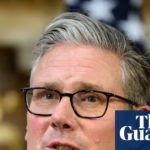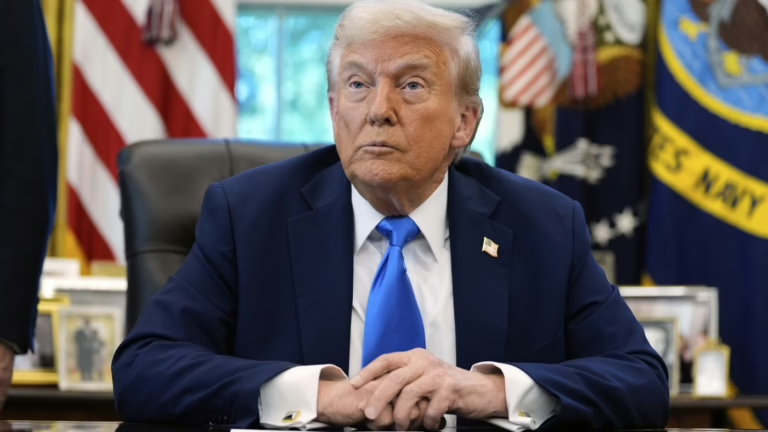President Donald Trump addresses a reporter’s question inside the White House Oval Office on Friday.
Alex Brandon/AP
President Trump’s recent executive directive on immigration imposes a significant restriction on the H-1B visa program, which currently supports hundreds of thousands of foreign professionals residing in the U.S.
This move also poses challenges for major technology corporations that have actively sought to build rapport with the Trump administration throughout the year, prompting questions about the effectiveness of their efforts.
On Friday, the president enacted an executive order introducing a $100,000 surcharge for high-skilled foreign workers applying for new H-1B visas. This represents a substantial and abrupt transformation of a program widely utilized by large enterprises to recruit specialized talent such as software developers and other experts.
In response, several companies have urged their employees to either remain within the U.S. or urgently return before the new policy takes effect at midnight.
For instance, Amazon advised its staff via an internal memo-reported by Business Insider and Reuters-to expedite their return to the U.S. before 12:00 a.m. EDT on Sunday, September 21, 2025. (Amazon did not provide comments to NPR on this matter.)
Similarly, Microsoft and JPMorgan Chase issued comparable advisories following the executive order’s announcement. (Microsoft declined to comment, and JPMorgan Chase did not respond to inquiries.)
A White House representative clarified that the $100,000 fee applies exclusively to new visa applications and does not affect renewals or current visa holders.
The H-1B Visa Program: Widely Used but Controversial
As of 2020, over 500,000 individuals in the U.S. hold H-1B visas, according to government data. Annually, Congress caps the issuance of these visas at 85,000 through a lottery system, with a current registration fee of $215. However, employers often incur additional substantial costs, including application and legal fees.
Designed to attract highly educated professionals such as engineers and healthcare specialists, the H-1B program requires employers to certify that no qualified American workers are available for the position and that the foreign worker will receive comparable compensation.
While technology companies dominate the use of H-1B visas, other major employers include financial institutions like JPMorgan Chase, retail giant Walmart, and staffing agencies such as Tata and Cognizant, which place skilled workers across various industries.
The White House contends that some employers have misused the program to replace American workers with cheaper, less skilled foreign labor, a claim highlighted in Trump’s executive order.
Criticism of the H-1B program spans the political spectrum, with figures like Senators Bernie Sanders and Eric Schmitt, as well as Representative Ro Khanna, voicing concerns. A 2020 report by the Economic Policy Institute found that many H-1B workers are paid below market rates.
Ron Hira, a political science professor at Howard University specializing in high-skilled immigration, describes the program as exploitative. He cautiously welcomed the executive order, stating, “This initiative, at least in direction, is overdue and moves toward necessary reform.”
Conversely, immigration advocacy groups have condemned the policy. The American Immigration Council warned that the new fee will constrict the talent pipeline, hinder job growth, and weaken America’s global competitiveness.
Tech Giants and Their Efforts to Gain Favor with the Trump Administration
Regardless of its effects on workers, the hefty $100,000 surcharge on H-1B visas represents a setback for the tech sector, which relies heavily on foreign talent. Amazon leads in sponsoring H-1B workers, followed by Tata, Microsoft, Meta, Apple, and Google.
Tesla, led by Elon Musk-once an ally of Trump-also depends significantly on the H-1B program and has faced legal challenges alleging underpayment of visa workers.
After a public fallout between Musk and Trump earlier this year, the new visa fees underscore the limited success of tech companies and their billionaire leaders in maintaining favorable relations with the administration.
Many top executives from leading H-1B sponsoring firms have actively courted Trump during his second term, attending his inauguration, contributing to his inaugural fund, pledging substantial U.S. investments to avoid tariffs, and participating in recent White House dinners.
Nonetheless, the introduction of the $100,000 visa fee is among several policies that complicate and increase the cost of doing business for these companies under the current administration.

















